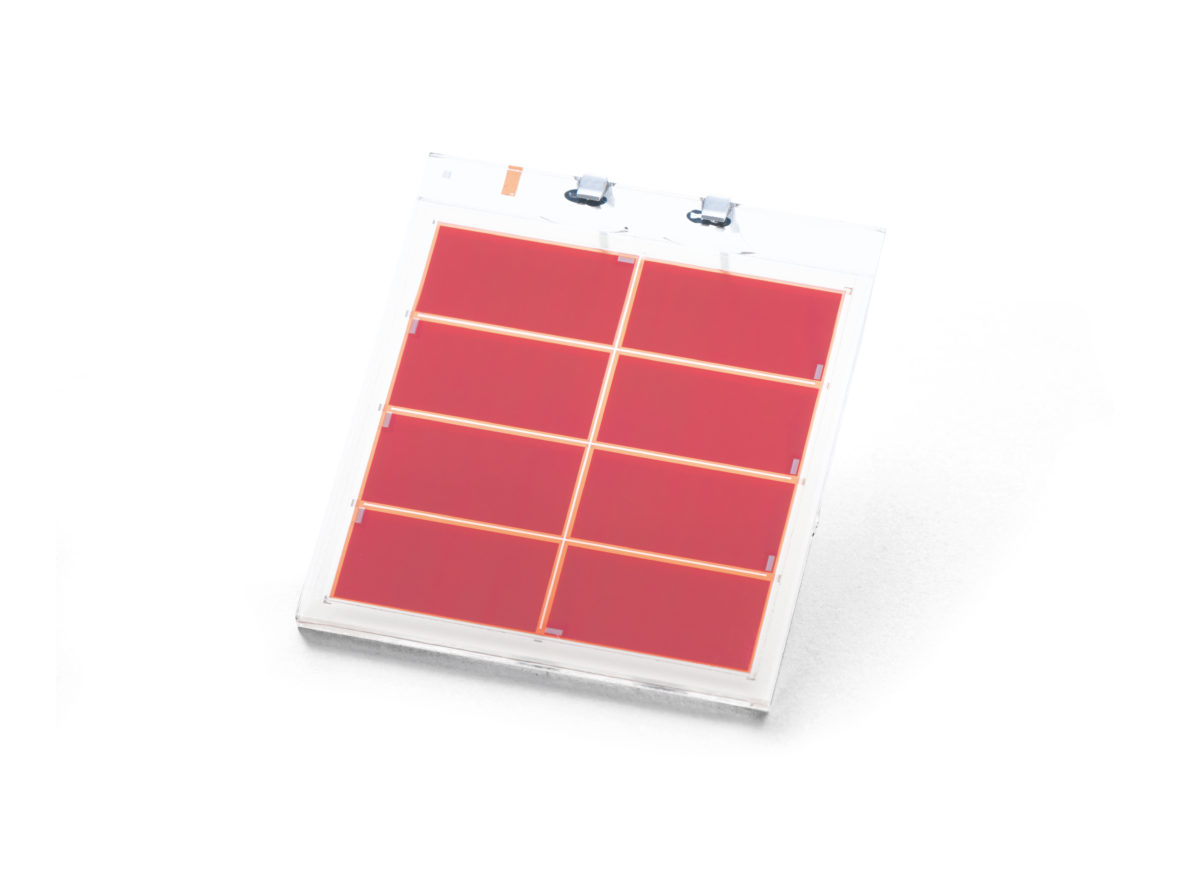Ricoh Company Ltd has launched a solid-state, dye-sensitized solar cell for integration with sensors and other standalone devices that require low levels of electricity.
The cells are connected in series to form modules. The largest module available – measuring 52x84mm and with an output of 230 microwatts – has been integrated into the ‘Loopline T1’ energy generating desk designed by Japanese corporation Taisei as part of a sustainable office furniture range. Ricoh says further potential applications include powering remote controllers and environmental sensors.
A paper published last year at the Massachusetts Institute of Technology estimated the market for device-integrated solar cells could be worth more than $1 billion by 2024, and will require the development of dedicated devices and improved business models for their manufacture.
Liquid concerns
Dye-sensitized solar cells have interested scientists for years thanks to their potential for low-cost manufacturing. However, the presence of a liquid electrolyte has proved a headache for product development, something Ricoh has eliminated with its solid-state device.
“Originally, our DSSC [dye-sensitized solar cell] technology applied the organic photoconductor technology that we developed to drive our multi-function printers,” said Tetsuya Tanaka, general manager of Ricoh’s Energy Harvest Business Center. “Belief in technology that fuels the future led us to leverage that same DSSC technology to fuel renewable energy in environments critical to our customers, such as offices with little natural light. We're thrilled to introduce solid-state DSSC technology to the world and are eager to continue developing new applications for this critical renewable energy source.”
Popular content
Colors
Details of the chemistry used in the new device were not published but Ricoh said it employs an organic p-type semiconductor with solid additive agents.
The device is initially being supplied in dark red, and Ricoh said that it can change the dye color and is developing transparent cells for mobile phone integration. The cells will be available in Japan this month, first in the 52x84mm format with smaller versions to follow in March and April.
Swedish startup Exeger is developing dye-sensitized solar cells for similar applications and, after receiving $10 million from Japan’s Softbank, expects to ship its first products this year.
This content is protected by copyright and may not be reused. If you want to cooperate with us and would like to reuse some of our content, please contact: editors@pv-magazine.com.



5 comments
By submitting this form you agree to pv magazine using your data for the purposes of publishing your comment.
Your personal data will only be disclosed or otherwise transmitted to third parties for the purposes of spam filtering or if this is necessary for technical maintenance of the website. Any other transfer to third parties will not take place unless this is justified on the basis of applicable data protection regulations or if pv magazine is legally obliged to do so.
You may revoke this consent at any time with effect for the future, in which case your personal data will be deleted immediately. Otherwise, your data will be deleted if pv magazine has processed your request or the purpose of data storage is fulfilled.
Further information on data privacy can be found in our Data Protection Policy.